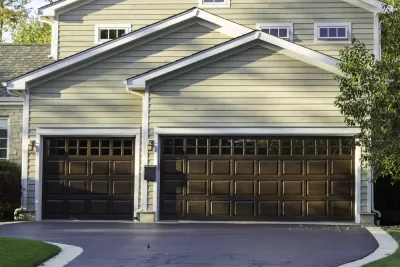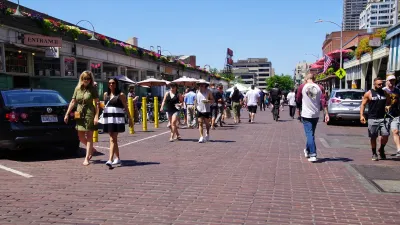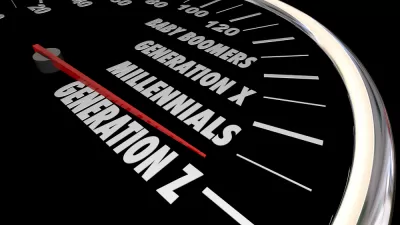The young and the recently arrived in Seattle are less and less likely to own a car, according to new Seattle Times analysis of Census data.

According to an article by Gene Balk, peak car is still alive and well in Seattle. "Census data show that from 2010 to 2015, the percentage of Seattle households that own a vehicle declined — that’s noteworthy because it’s something that hasn’t happened in decades," writes Balk.
According to Balk's analysis, the reason for the decline is the generational change brought about by Millennials. "At the start of this decade, someone under the age of 35 was just as likely to own a car as anyone else in Seattle. Five years later, car ownership among the city’s young had declined by about 3 percentage points," explains Balk.
The article includes data on other cities from around the city. Seattle leads the pack of cities that are decreasing car ownership—Detroit, Washington, D.C., New York, and San Francisco. The cities with increasing car ownership are lead by Philadelphia, and followed by Atlanta, Denver, El Paso, and Raleigh. Interestingly, in July 2016, the news focused on how Seattle residents owned more cars than Atlanta residents—now we see these two cities' fortunes changing.
It should be noted that Seattle's reduced car ownership and other reports of declining car ownership from around the country are not reflective of the overall national trend in another measure of car culture: vehicle miles traveled. As Planetizen Blogger Steven Polzin has detailed, in terms of vehicle miles traveled, peak car is far from a reality.
FULL STORY: Seattle has reversed a decades-long trend of rising car ownership — and millennials are the reason

Alabama: Trump Terminates Settlements for Black Communities Harmed By Raw Sewage
Trump deemed the landmark civil rights agreement “illegal DEI and environmental justice policy.”

Study: Maui’s Plan to Convert Vacation Rentals to Long-Term Housing Could Cause Nearly $1 Billion Economic Loss
The plan would reduce visitor accommodation by 25% resulting in 1,900 jobs lost.

Planetizen Federal Action Tracker
A weekly monitor of how Trump’s orders and actions are impacting planners and planning in America.

Waymo Gets Permission to Map SF’s Market Street
If allowed to operate on the traffic-restricted street, Waymo’s autonomous taxis would have a leg up over ride-hailing competitors — and counter the city’s efforts to grow bike and pedestrian on the thoroughfare.

Parklet Symposium Highlights the Success of Shared Spaces
Parklets got a boost during the Covid-19 pandemic, when the concept was translated to outdoor dining programs that offered restaurants a lifeline during the shutdown.

Federal Homelessness Agency Places Entire Staff on Leave
The U.S. Interagency Council on Homelessness is the only federal agency dedicated to preventing and ending homelessness.
Urban Design for Planners 1: Software Tools
This six-course series explores essential urban design concepts using open source software and equips planners with the tools they need to participate fully in the urban design process.
Planning for Universal Design
Learn the tools for implementing Universal Design in planning regulations.
Caltrans
Smith Gee Studio
Institute for Housing and Urban Development Studies (IHS)
City of Grandview
Harvard GSD Executive Education
Toledo-Lucas County Plan Commissions
Salt Lake City
NYU Wagner Graduate School of Public Service





























